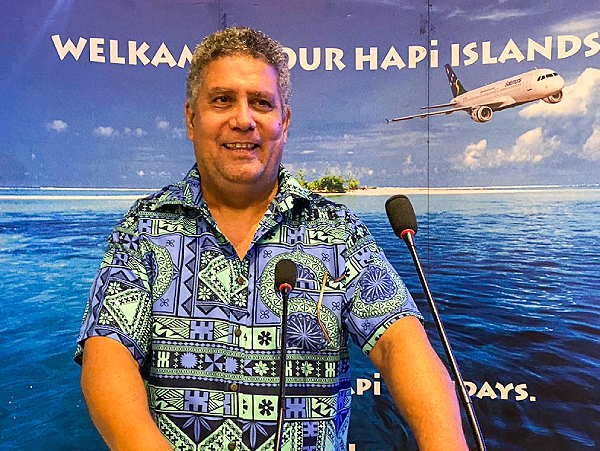CHAIRMAN of the Solomon Airlines Board and Guest of Honor at the 20th Anniversary of the Kokonut Pacific Solomon Islands (KPSI), Frank Wickham has highlighted the need for the rehabilitation of coconut plantations nationwide.
This is to improve the livelihood of Solomon Islanders and improve the national economy.
The celebration of KPSI’s 20th anniversary was held at their Head Office and factory site at the Sun Valley Junction in Lungga, Central Guadalcanal last week.
“We need a nationwide [rehabilitation] program to rehabilitate and plant coconut.”
The former Permanent Secretary of the Ministry of Agriculture and Livestock (MAL) said the coconut industry was established during the British Solomon Islands Protectorate era when he and many of those who attended the KPSI 20th anniversary celebrations were children.
“We need another major program like that to rehabilitate and also to replant coconut plantations and focus on the growers and processors. Also, the coconut program should target our youths and school leavers.
“I hope the Minister of Agriculture and Livestock and his Permanent Secretary will have this program on their agenda because we need to quickly get on that path,” Mr Wickham said.
Mr Wickham added that many people will not appreciate the value and significance of coconut in Solomon Islands cultures and livelihood, let alone know how to plant a coconut.
He also underscored the threats posed to coconut industry by Rhinoceros Beetles and Climate Change.
Mr Wickham said the national government should support the coconut industry to mitigate these threats.
“Now we have the threat of Rhinoceros beetles and Climate Change. Of course, they are now threats to our rural livelihood and our ecosystem but these threats also provide a great opportunity to accessing climate finance,” he added.
Mr Wickham acknowledged the New Zealand Government for supporting Solomon Islands Government through the Ministry of Agriculture and Livestock (MAL) to fight against Rhinoceros Beetles.
“And with the Rhinoceros Beetles, thank you to the Government of New Zealand who is working with Ministry of Agriculture and Livestock. Work is still in progress and we look forward to the success that will come out from that work because this beetle species is a dangerous one.”
On Climate Finance, Mr Wickham said he thinks Solomon Islands Government and all development partners should look at how they can mobilize climate finance for adaption and mitigation in the coconut industry.
“I think Vanuatu has mobilized climate finances for bio-fuel, using coconut as an alternative to fossil fuel,” he said.
Mr Wickham added that to improve this process, Solomon Islands Government intervened particularly during COVID-19 with the ‘Stimulus Package’ which some have benefited from.
“We don’t really know how effective that worked but there should be an evaluation and some consultation to see what we can learn from that kind of mechanism to help us recover from such situation,” he said.
By LACHLAN SHYVES EDDIE
Solomon Star, Honiara





